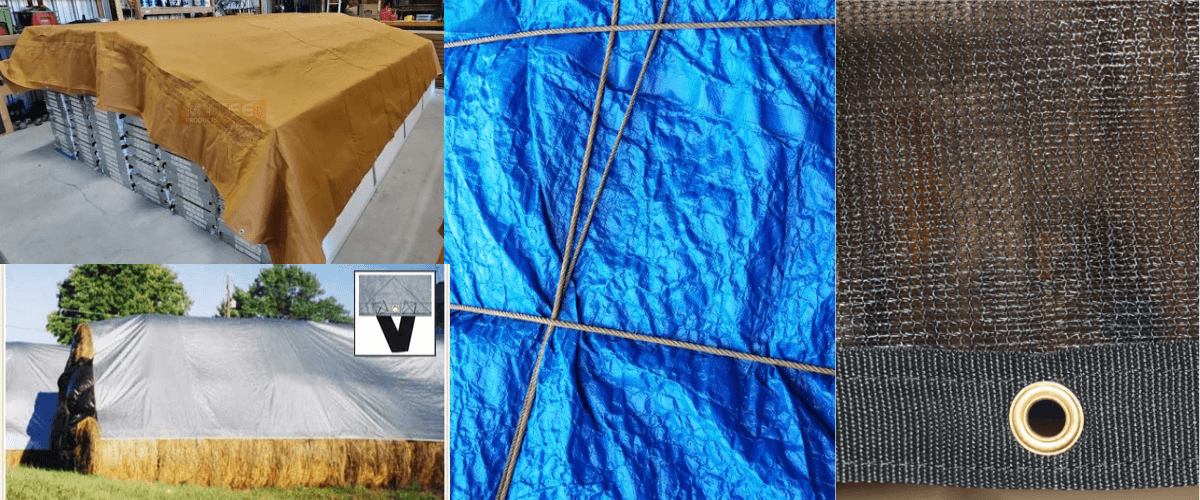
When it comes to tarps, there are a lot of different types that you can choose from. Vinyl, Mesh Shade, and Poly are just to name a few. It can be confusing and a little overwhelming when you’re first looking into tarps and which one would be best for the job you’re looking to perform. Today, we’ll look at all of the different materials and types of tarps for sale, as well as what they’re best used for.
1. Vinyl Tarps
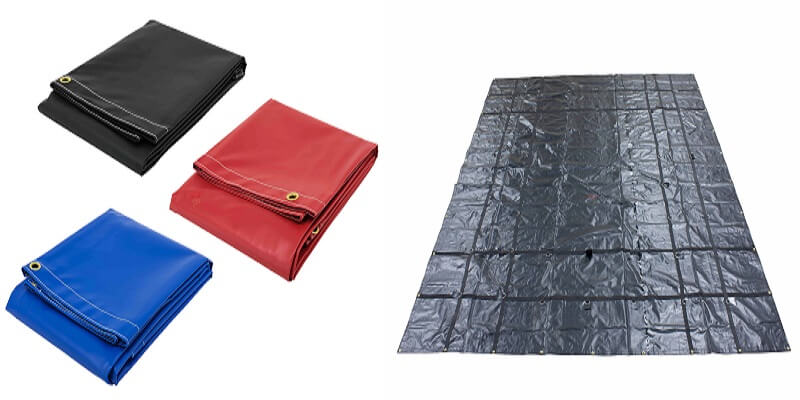
Vinyl tarps are one of the best options out on the market. Vinyl is extremely durable, cost efficient, and is naturally waterproof making it resistant to mildew and mold. This type of tarp is popular among flatbed truckers due to the high quality of the material, which makes it resistant to harsh elements and waterproof. You can find these tarps covering a variety of different cargo like machinery, wood, and steel. Vinyl is also UV resistant, so these kinds of tarps can stay out in the sun for long periods of time without showing any signs of deterioration.
2. Canvas Tarps
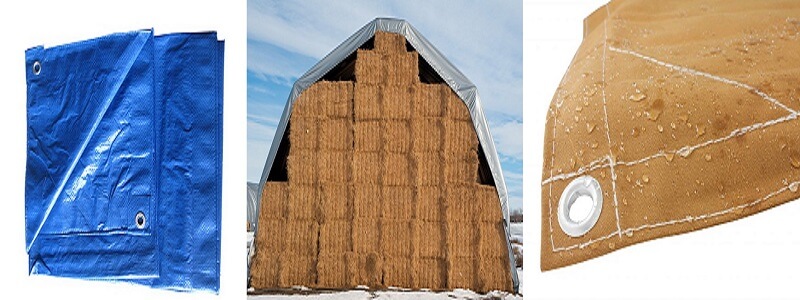
These tarps are more nature friendly and will commonly be found on construction or project sites. Canvas tarps are made out of a breathable material that make it perfect for jobs and projects where you want to protect the object or area you’re covering but you want moisture to escape. Given that canvas is waterproof, there’s no chance that mold or mildew will grow. The material they are treated with makes them fire resistant as well meaning you can use it to cover heavy machinery or hot pipes, just be sure to use these tarps outside as the odor it gives off can be a bit too much.
3. Mesh Shade Tarps
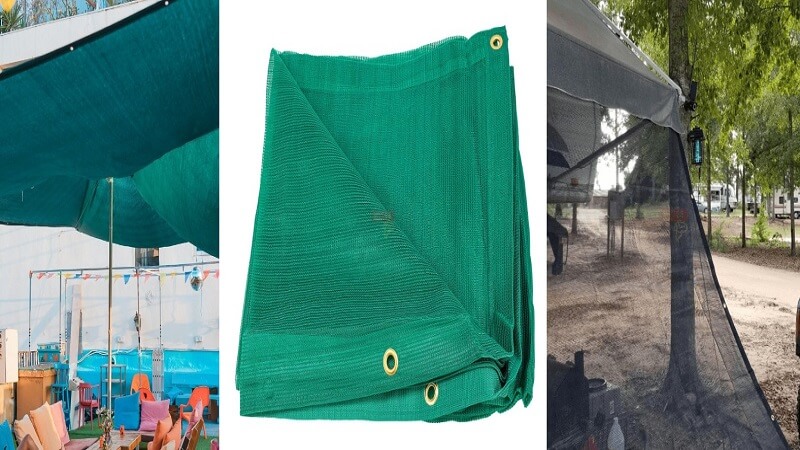
Mesh tarps are commonly used by landscapers to make greenhouses or privacy screens. Mesh tarps are made out of synthetic materials such as polyethylene or vinyl making them durable in high heat environments with a lot of UV exposure. Because of its design, you can find these types of tarps being used for a plethora of things such as a protection screen for plants and gardens to fend off harmful debris, or as a bee net. Mesh tarps are perfect for bee hauling because the mesh is small enough to keep bees in, while also allowing them to breathe.
4. Poly Tarps
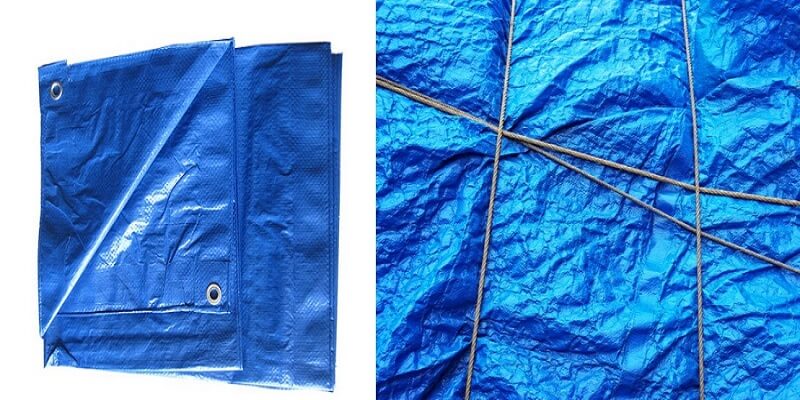
Vinyl and Poly tarps have very similar uses and features. They are both waterproof and heat resistant, and in turn, resistant to mold and mildew. The difference between them in the material they are made from. Poly tarps are made of woven polyethylene and coated with a polyethylene laminate. These tarps are favorable to those who do yard work a lot or need to keep a vehicle covered during the colder seasons since it’s much more affordable compared to a regular vinyl tarp.
5. Clear Vinyl Tarps
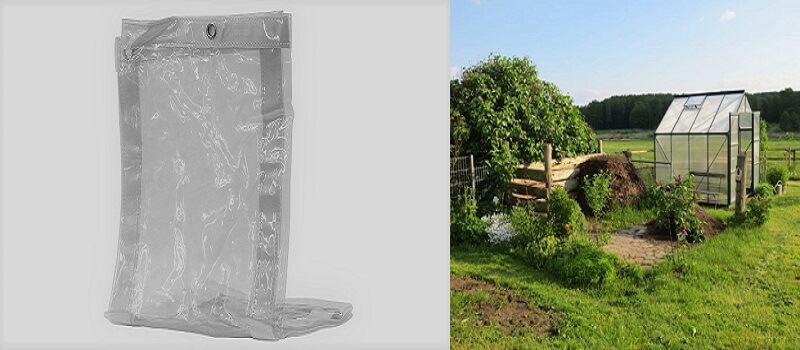
Clear vinyl tarps are very similar to the basic vinyl tarp, the major difference between them however is the clear composition which allows you to see right through the tarp. You may not have noticed it before, but these tarps are very commonly used in showers as liners between the inside of the shower and the outside. These tarps are perfect for repelling water and debris while allowing you to see right through them making them also perfect for makeshift windows for outdoor patios or cabins.
6. Leak Diverter Tarps
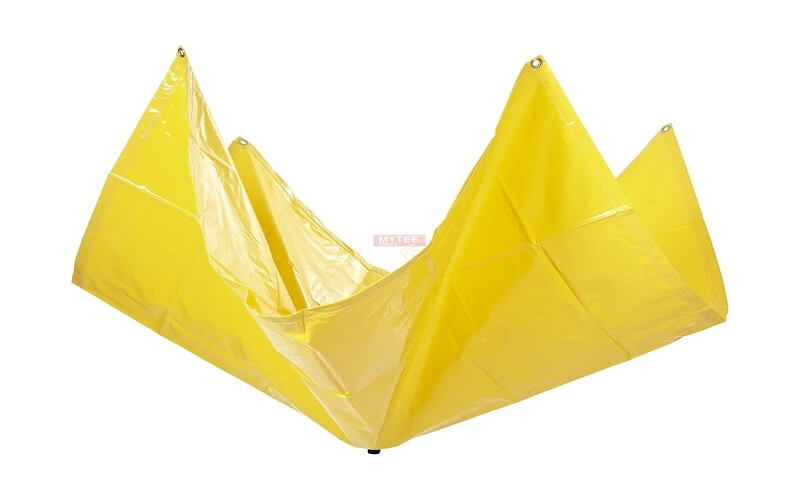
Like the name implies, these tarps are designed for one specific purpose, and that’s to divert water from a leak to a spot other than whatever is below it. These tarps are made like any other vinyl tarp, but this specific tarp features a drain that is compatible with garden hoses to divert water into that spot. By hanging the tarp up on the ceiling using the grommets on the corners, it creates a funnel shape to start catching water. Not only can you use this tarp to divert leaks, but you can also use this tarp for rainwater harvesting as well.
7. Container Tarp Covers
It’s not a well-known tarp, but it’s very useful. A container tarp is used for containers and dumpsters to prevent the loss of anything inside while on the road, or to prevent anything from getting inside from the outside. These tarps roll on and off the containers to prevent getting caught on sharp edges that could damage the tarp and are commonly made out of vinyl. With a material like vinyl, the contents inside the container are safe from snow, rain, and the harsh UV rays of the sun.
No matter what you’re using a tarp for, there are plenty of types to choose from that fit your needs. Whether it’s a leak diverter for rain catching or leak stopping, or mesh tarp for shade, there is always a tarp for that specific situation. Hopefully now the massive variety of tarps aren’t as overwhelming as it was before.
Steven Bennett
Related posts
Stay connected
Today's pick
- Everything You Need to Know About FADGIThe Federal Agencies Digital Guideline Initiative is a working group that sets preservation standards for the digitization of media, including still images, audio and video recordings. As part of this initiative, the FADGI Still Image Working Group develops quality standards for scanned documents and images.... The post Everything You Need to Know About FADGI appeared […]
